Powered up
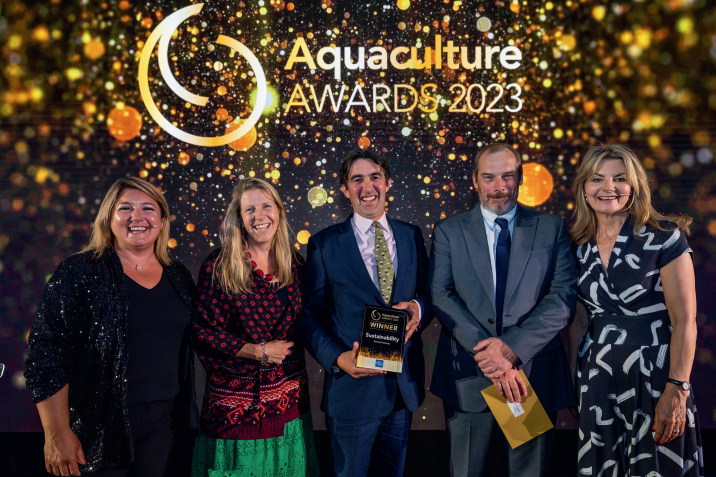
Selcoth Fisheries already runs largely on renewable energy but the family running it want to do more. Robert Outram finds out why
Selcoth Fisheries is a trout farm in the hills near Moffat in Dumfries and Galloway, in the southwest of Scotland.
It’s a small family business, run by Olly and Shara Routledge but earlier this year it beat heavyweight opposition in the UK Aquaculture Awards to scoop the title in the sustainability category.
How did Selcoth do it? The judges said: “Selcoth has consistently invested in projects and technologies that minimise environmental impact, maximise animal welfare and complement the local environment… the company has a reputation within the British trout sector for delivering high-quality rainbow trout while maintaining not just a neutral but an actively positive impact on their local environment.”
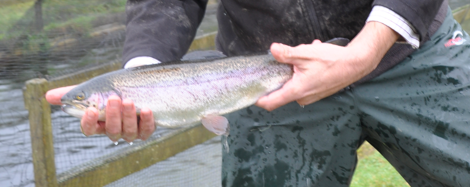
Olly with trout
One important factor was the Routledges’ commitment to running the farm as far as possible on renewable energy. They have implemented a hydro-electric supply network to power the fish farm’s offices, equipment and machinery.
They have also invested in state-of-the-art equipment including an in-water humane fish stunner and water filtration system, and delivered biodiversity and habitat improvement projects across the farm’s 2,000 acres.
Selcoth’s main business is raising rainbow trout from ova of up to 200g to 500g for growing on in sea or freshwater loch sites, but the farm also produces and harvests its own trout as portion fish. There are four employees working on the fish farm, as well as Olly and Shara, and a part-time employee for the hill farm.
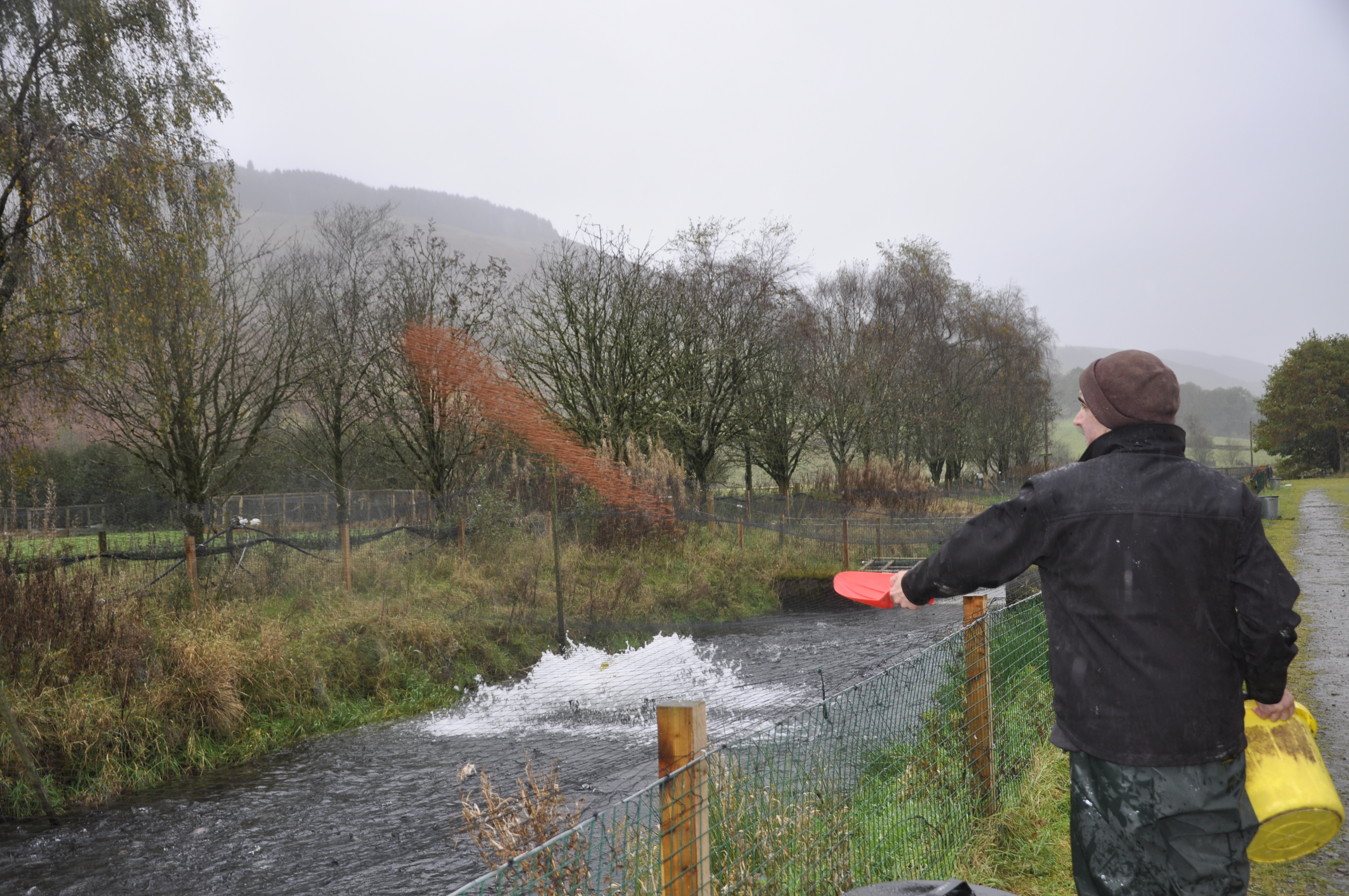
Feeding the fish
Selcoth has been in the same family for three generations, since Olly’s grandmother bought the property as a hill farm in 1963.
In 1976, Olly’s father, Peter Routledge, started the fish farm. He had taken a zoology degree at the University of Dundee and worked with Kames on the west coast with Stuart Cannon.
Olly Routledge says: “In the 1970s, fish farming was pretty much just taking off and at that time, trout was leading the way.”
Shara adds: “Olly’s father realised that the water coming down the valley at Selcoth was phenomenally good.”
The freshwater at the Selcoth farm is drawn from a combination of upland burns and springs so it is pure and, with the southwest of Scotland getting more than its fair share of rain, it makes for a reliable source.
Selcoth joined Scot Trout, the cooperative set up by producers to market trout to retailers, but left the group before it ran into difficulties in 2008 and was acquired by Dawnfresh Seafoods.
By 2010, Peter Routledge was looking to retire and that year he stepped down, with Olly and Shara taking on the running of the fish farm.

Hatchery and liquid oxygen store
Electric dreams
Olly had been a property solicitor specialising in agricultural matters, including renewable energy. This proved useful in the setting up of a 190kW hydro-electric scheme fed by the same burn that feeds the farm with water and which now provides power for the whole farming enterprise. The majority of the time, there is also spare electricity to sell into the grid for additional revenue.
The key element of the farm that still relies on mains power is the oxygen generator. This had been something Olly and Shara had been thinking about for some time, but it became urgent during the Covid-19 pandemic when it appeared liquid oxygen would be needed for hospitals and supplies would be growing short.
Shara says: “We had been wanting to make the investment in on-site oxygen generation for a long time, but up until then it had not been a top priority.”
Fortunately, the Routledges were able to use the UK Government’s Coronavirus Business Interruption Loan Scheme to help fund the investment.
The new system was built by Sterner, which now – together with JT Electric – trades as GroAqua. The Sterner team were able to deploy the new equipment rapidly and it was in place by June 2020.
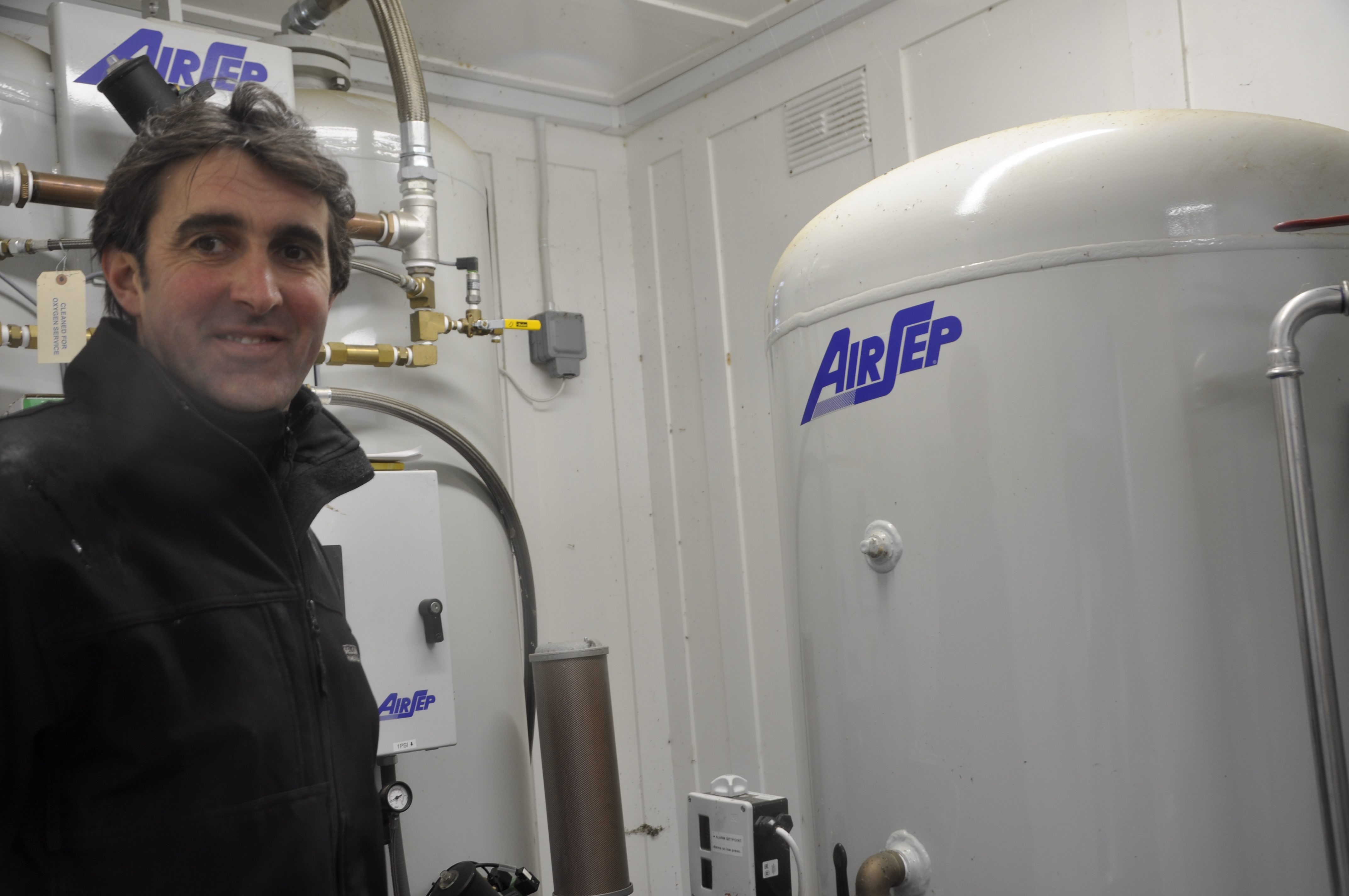
The Groaqua/Sterner
aerator
A storage facility by the hatchery ensures that there is a backup supply of liquid oxygen, sourced from Air Products, when required.
As Olly explains: “The original plan was to power the oxygen generator from the hydro, but it has a large 80kw compressor and we were concerned that drawing power from the hydro, particularly in periods of low flow in the summer, would put our electrical infrastructure under too much load.”
Summer, the period of lowest water flow, is also the time when the farm’s demand for oxygen is at its height.
The next step will be to install a 100kW ground-mounted solar photovoltaic array – for which planning permission has already been received – which will feed straight into the oxygen generator.
Since the hydro scheme is rated at 190kW and the current load of the fish farms only reaches 40kW, that leaves a surplus. Rather than selling that back to the grid, however, the Routledges’ plan to increase on-site electrical usage and the coming year will involve a rebuilding programme designed to achieve just that.
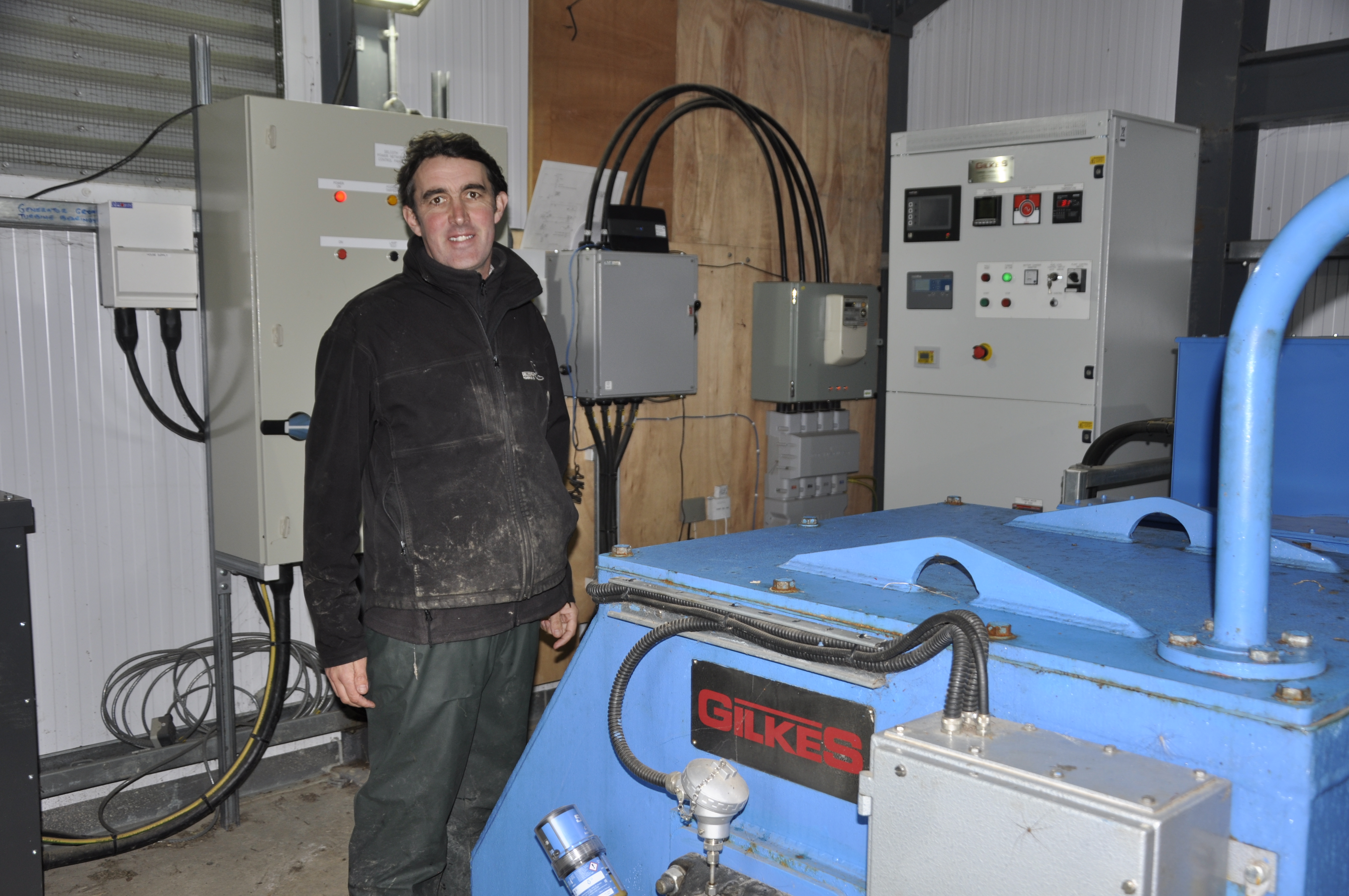
The hydro generator
The building work, partly funded by a grant from Marine Scotland, will start with the hatchery, which is currently empty.
The project is due to be completed in April.
Selcoth is also still a diversified hill farm, with a flock of 300 Scottish blackface ewes.
The Routledges have also instituted three tree-planting schemes on what was previously sheep pasture, restoring native woodland, mainly birch and Scots pine. The investment has been supported by the Scottish Government – over two years, there will be more than 400 acres planted with 267,000 trees. The farm had already been diversified but this was an even bigger focus after Olly and Shara took it on in 2010.
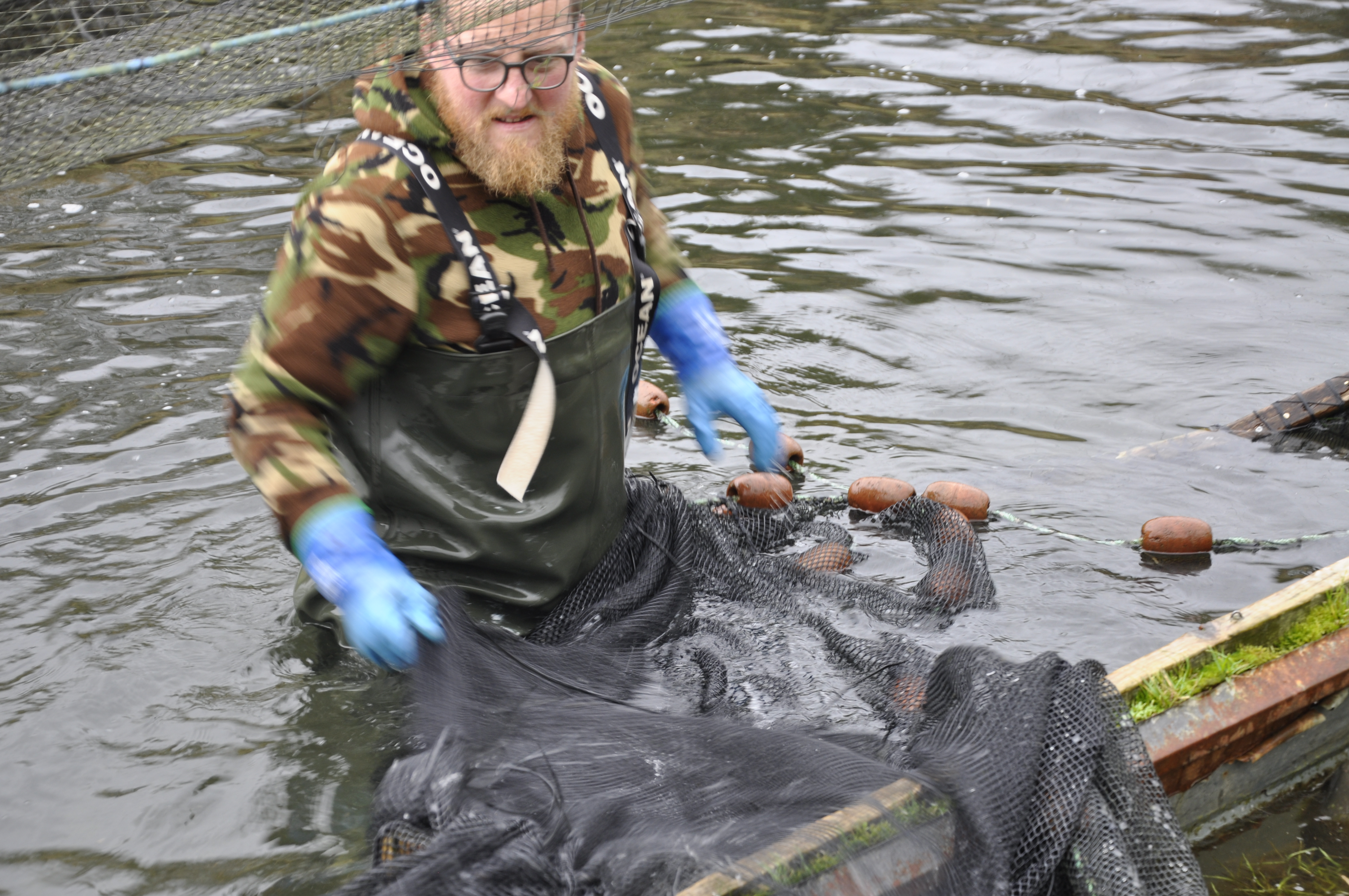
Arran J.Hunter in the pond
Shara says: “To be sustainable as a farm, I think you need a few different business routes you can go down. Sustainability isn’t always easy.”
Olly agrees, adding that for hill farmers without diversified revenue streams: “Things are going to be increasingly difficult as agricultural support moves away from being based on land-owned and instead based more on delivering for the public good.”
He adds: “For me, the issue of biodiversity loss is as important as climate change. Biodiversity loss across the planet is huge. Hill farms like this were massively overgrazed in the 1970s – there were 700 sheep on this farm at one time.”
Replanting with native species not only means more plant diversity – it massively increases the number and variety of animal, bird and insect life.
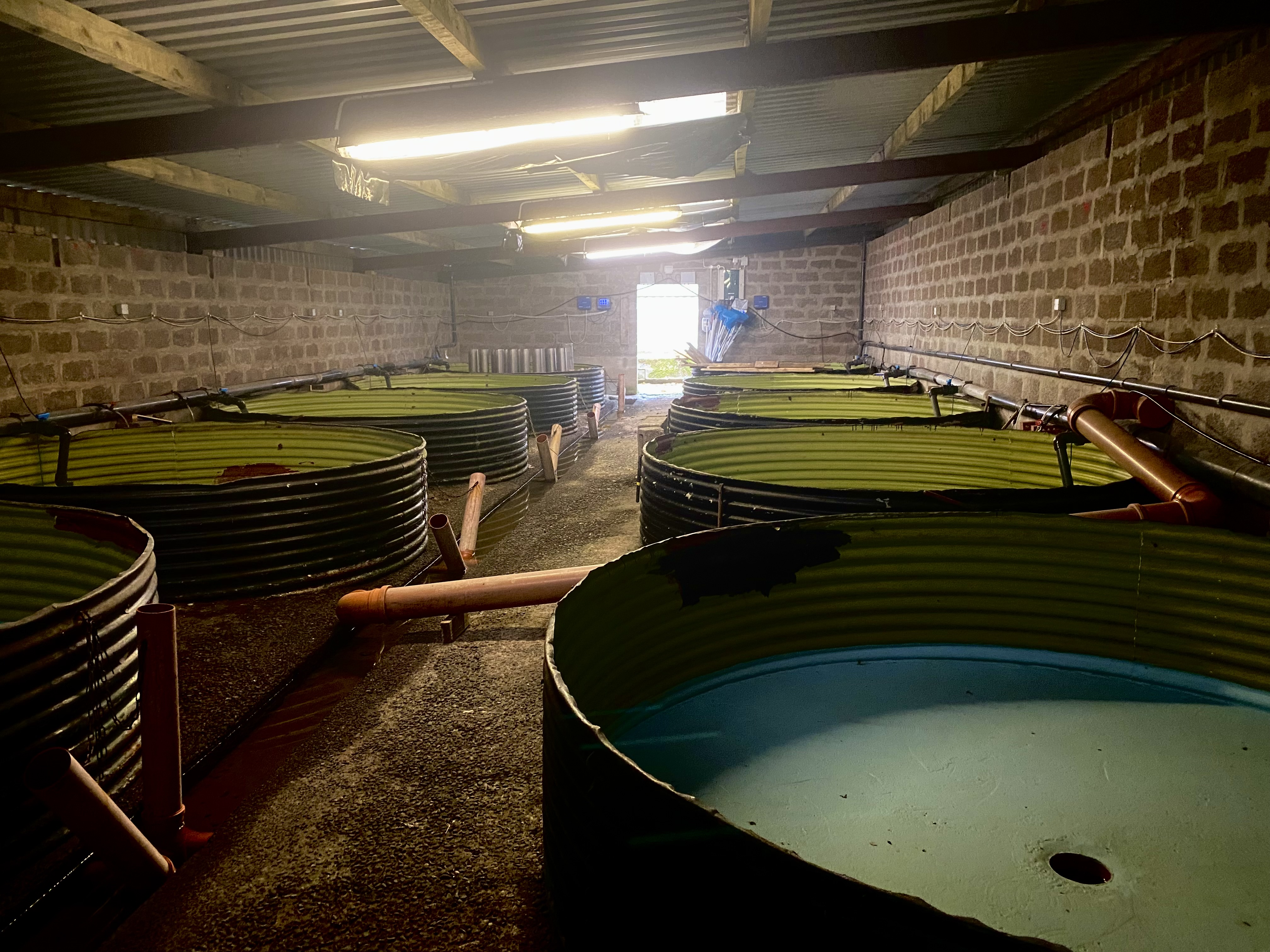
The hatchery, now empty
Changing demand
Scot Trout’s product through the 1980s and 1990s was mainly portion trout, but the trend now is much more to large trout. Selcoth’s main customer for this is Dawnfresh, whose farming operations have been part of the Mowi group since February.
Selcoth has also found a new processor for its own fish since Dawnfresh Seafoods – which was a seafood processor as well as running its own fish farms – went into administration. Selcoth supplies JK Thomson of Musselburgh with portion-sized trout for the restaurant trade and fishmongers.
Olly says: “If you’ve bought a portion trout product at an Edinburgh or Glasgow fishmonger’s, there’s quite a good chance it’s ours.”
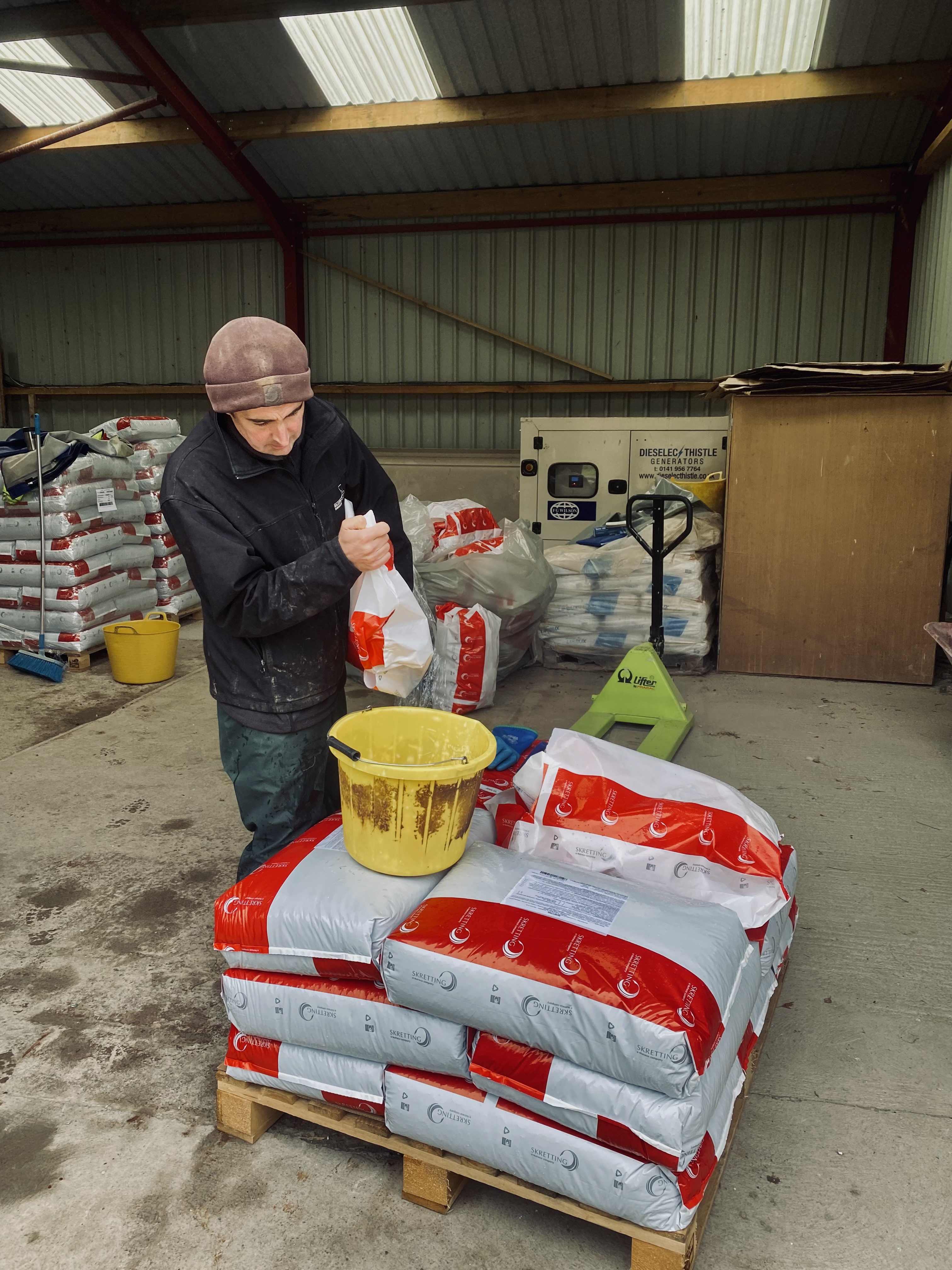
Olly with feed
At one stage, Selcoth also had its own brand of smoked trout. As Shara explains: “It was a great brand and sold at a high price, but it was just not on a scale big enough to be profitable. We couldn’t make the numbers work.”
In harvesting its own fish, Selcoth uses a Vaki fish pump and has also installed a humane electrical stunner from Ace Aquatec. The latter was also cited by judges at the Aquaculture Awards as part of Selcoth’s sustainability credentials.
Ongoing challenges include the cost of feed – although this has been coming down after the price shock of 2022 – and the imperative to make feed itself more sustainable. As far as possible, the Routledges are trying to substitute fishmeal from wild-caught sources with alternative feed source in collaboration with their main feed provider, Skretting.
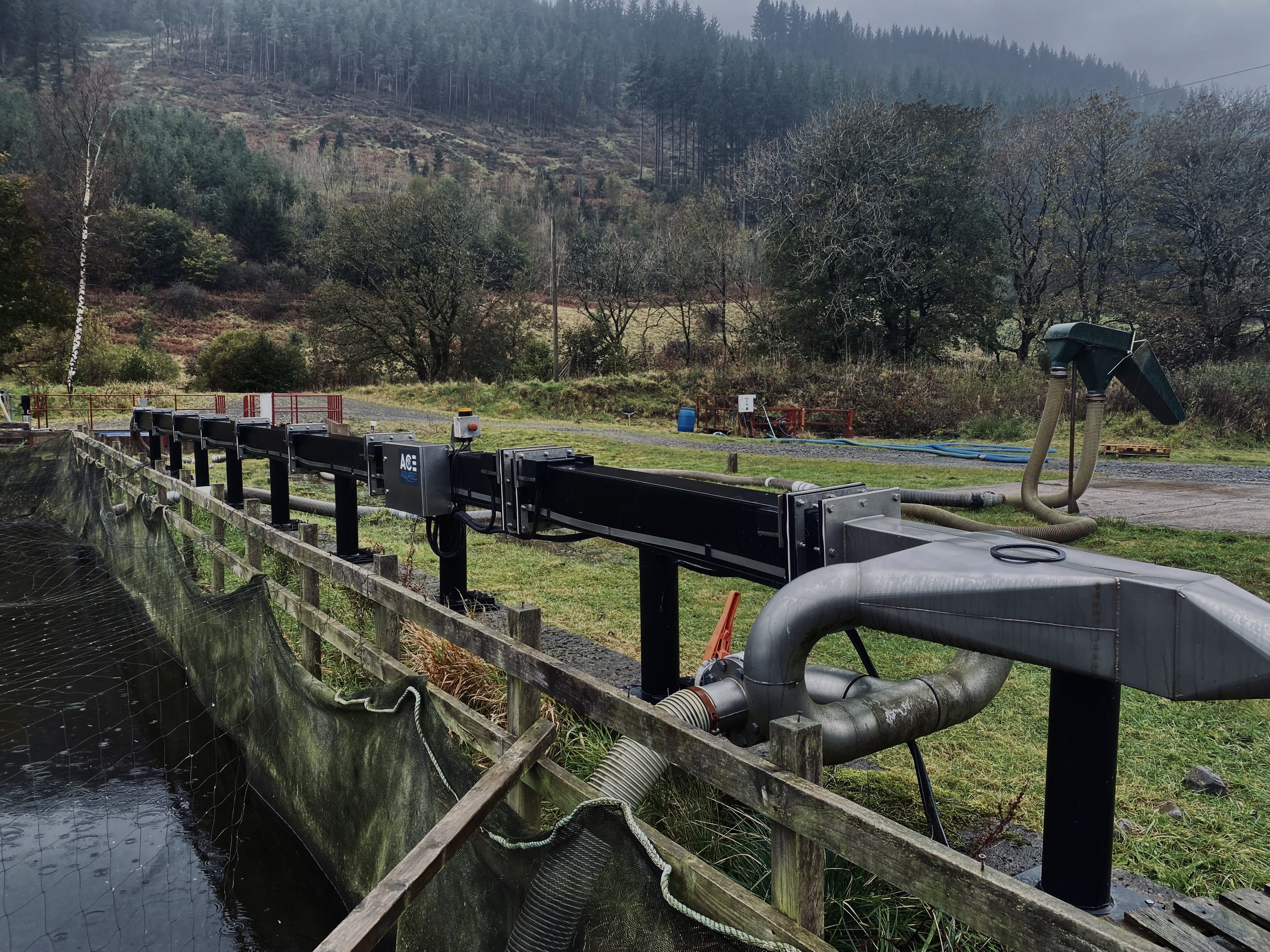
Ace Aquatec stunner
Skretting has also been able to provide a probiotic feed to help protect the fish against a non-lethal skin infection known as red mark syndrome.
Economic sustainability – ensuring the business remains financially viable – is clearly important but there’s no doubt the Routledge family are committed to sustainability in the round.
As Shara puts it: “As farmers and parents, we feel a strong responsibility to reduce our impact on the planet for the next generations. On that basis, sustainability has to run the whole way through everything we do.”

